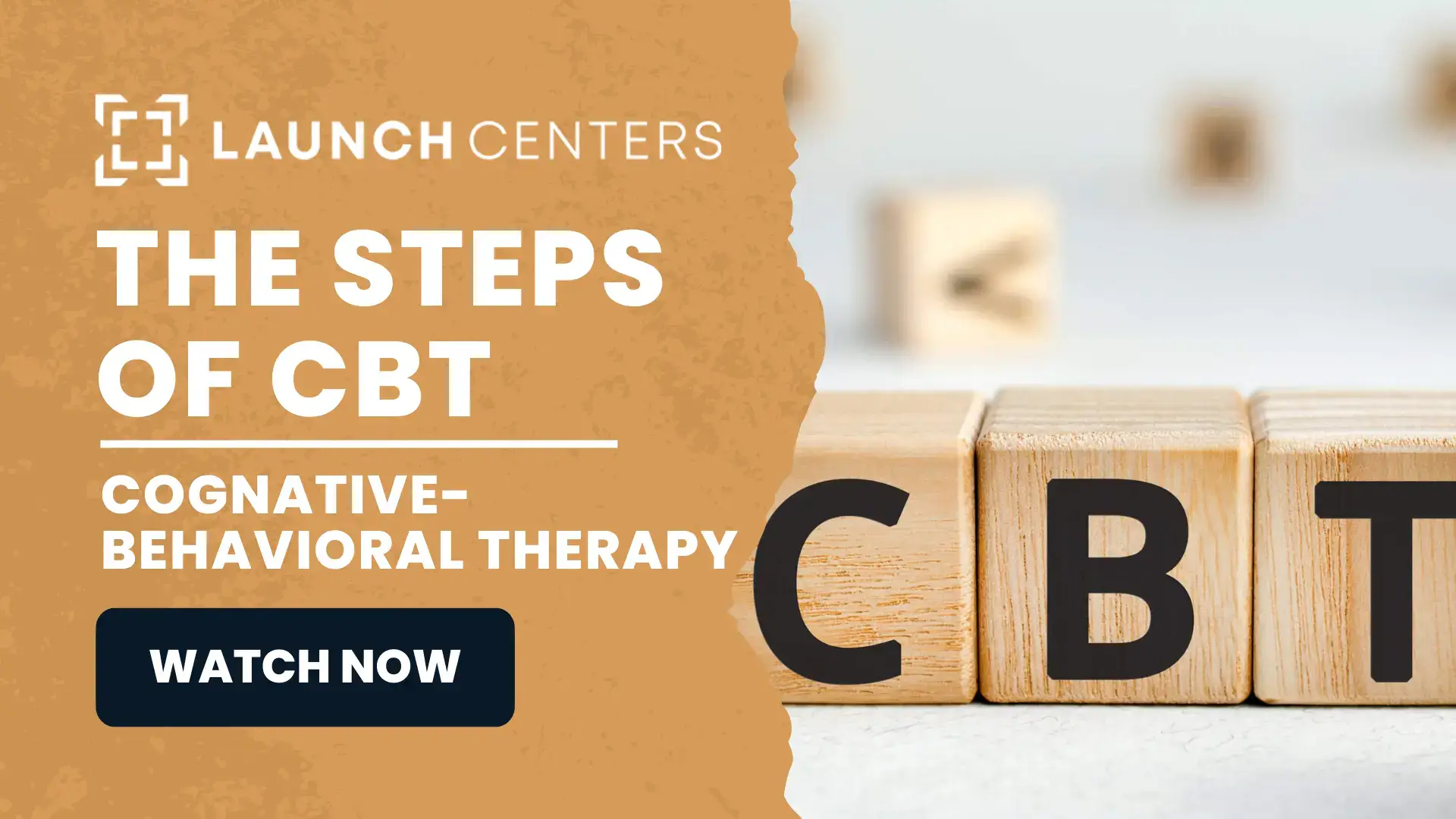Specific steps of CBT, or cognitive-behavioral therapy, must be taken to help patients achieve a more positive way of thinking. And positive ways of thinking result in better overall mental health. Read on to discover how this groundbreaking therapy has proven beneficial in treating the mental health disorders of countless people.
What is CBT?
Cognitive-behavioral therapy is a type of talk therapy that helps people recognize and alter their negative thinking patterns. Founded by psychiatrist Aaron T. Beck in the 1960s, CBT was originally created to treat depression. However, CBT has also proven helpful in treating several other conditions, including:
- Anxiety disorders
- Post-traumatic stress disorder (PTSD)
- Obsessive-compulsive disorder (OCD)
- Bipolar disorder
- Eating disorders
- Schizophrenia
- Substance use disorders
Types of CBT
There are different types of therapy that fall under the CBT umbrella. Which type of CBT is utilized is a matter of determining the individual patient’s needs.
Some types of CBT include:
- Cognitive Processing Therapy (CPT), which helps patients recover from post-traumatic stress disorder (PTSD) and related conditions.
- Cognitive Therapy (CT), which attempts to alter the patient’s unwanted behavior patterns to treat mood disorders, including depression.
- Dialectical Behavior Therapy (DBT), used commonly to treat personality disorders and interpersonal conflicts. DBT has also proven useful in treating mood disorders, suicidal ideation, substance use disorder, and self-harm.
- Rational Emotive Behavior Therapy (REBT), which helps people deal with irrational beliefs to learn how to better manage emotions, thoughts, and behaviors.
The Benefits of CBT
As the patient progresses through the various steps of CBT, they ideally attain several goals. One of the main goals is the management and reduction of the symptoms of their mental health disorder as they occur. This type of therapy also teaches individuals to identify their emotions, improve their communication with others, and resolve conflict in healthy ways.
CBT can help people deal with loss and grief, and overcome trauma sustained from violence and abuse. What the patient learns in CBT contributes to their being able to avoid the relapse related to drug and alcohol addiction. While many people using CBT also take prescription medications for their mental health disorder, they can also benefit when medication does not present a viable option.
How Long Do the CBT Stages of Therapy Take?
One advantage of CBT has to do with the length of time needed to participate in it. While some talk therapy can consist of years of regular appointments, CBT is designed to be a short-term therapeutic treatment, typically lasting from about five to twenty sessions. Factors that contribute to how long it takes to complete the CBT stages of therapy include:
- Which disorder the patient has
- How long they’ve had the disorder
- The severity of their symptoms
- How quickly they progress during treatment
- The support the patient receives from loved ones
CBT can be combined with other types of therapy to offer a multi-prong approach for those receiving it.
The Steps of CBT
The steps of CBT begin with an assessment by a licensed therapist who recommends CBT treatment.
Step 1: Initial Assessment
The first meeting involves the therapist doing an intake of the patient. A history of the person’s life is usually taken. The therapist can identify negative thought patterns present in a patient, as well as physical and emotional reactions. The therapist combines that with their observations about how the person thinks, believes, and processes information, resulting in a customized plan for treatment. This stage helps identify situation-specific difficulties, residual issues from the past, and any mental health or addiction diagnoses.
Step 2: Development of New Concepts
The therapist helps the patient change how they view situations and learn how to replace any automatic negative thought patterns with positive ones. This stage helps cement the new concepts and make sure the patient understands them. Many patients keep a journal to record their issues and new ways to react to them.
Step 3: Acquirement of New Skills
The new way of thinking and viewing things now begins to become action-oriented as the patient formulates healthy behavior patterns to deal with mental illness and addiction symptoms. They cross a bridge between understanding what their new concepts should be to how to achieve them. Many of their initial symptoms begin to lessen during this phase.
Step 4: Applying New Skills to Stressful Situations
As situations, emotions, and symptoms arise, the patient applies their newfound skills to each of them. As they move through this phase, they become more comfortable with the new approach, checking in with the therapist to evaluate each example of using their new approaches. The goal is to make their new reactions a pattern to begin using regularly.
Step 5: Maintenance
At this point in the CBT stages of therapy, a person has become familiar and comfortable with how they now handle challenges in their lives. They practice their skills with confidence and without fear of automatically applying old thought patterns and behaviors. Patients then begin the process of wrapping up the CBT process with their therapist.
Step 6: Follow-up Treatment
While regular therapy appointments will come to an end, the therapist will continue to see their client for follow-up appointments. They give the person a chance to check in and make sure they are still practicing CBT skills. The time between follow-up appointments will grow, eventually ending in termination of treatment.
Addiction Treatment and Therapy in California
If you need help fighting an addiction to alcohol or drugs, Launch Centers provides a program that helps you gain control of your life. We treat addictions and mental health diagnoses in our Los Angeles facility. Our programs address overall wellness, educational goals, and parent coaching. Launch Centers can help you or someone you love change your life. Contact us today to find out how to get started now.






